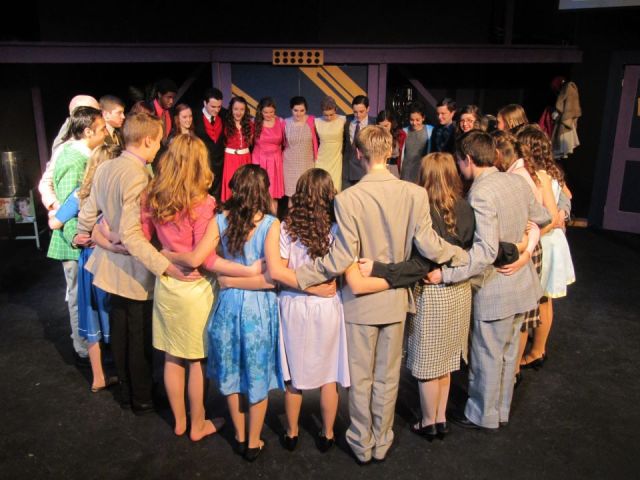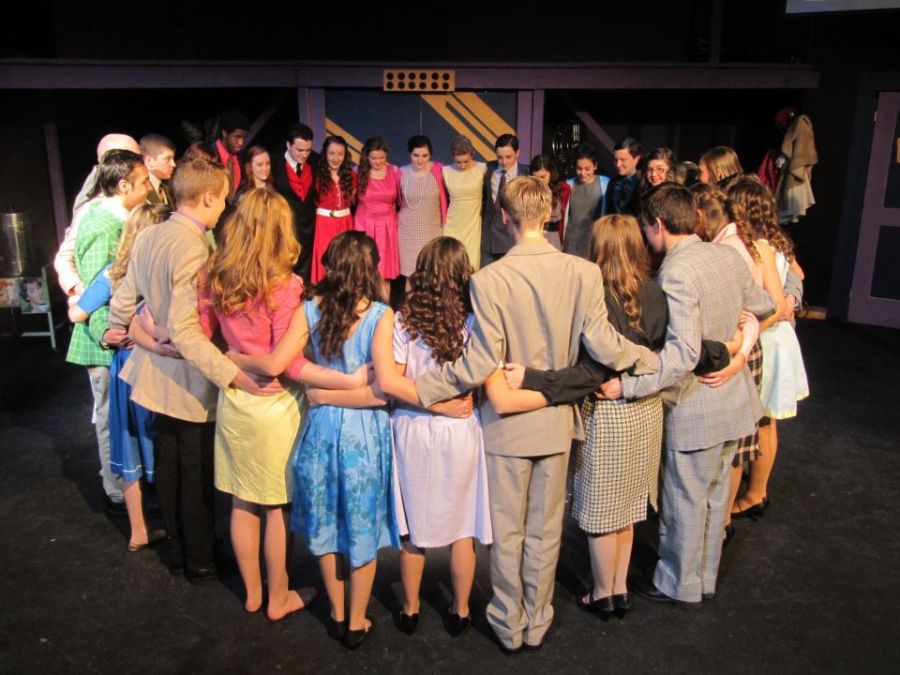
I recently got an email from a friend who is stage managing a show and is finding that some of the actors are not feeling very included and separated from the rest of the cast. That seriously sucks! As I’ve said before, theatre is such a creative medium. It’s absolutely crucial to create a sense of community right from the get-go. Unfortunately, my friend’s show opened last week, so it’s a little bit late now — but it’s not impossible to salvage some of that community feeling. However — it’s best not to wait until opening night to bond with your fellow cast and crew members. So without further ado, here are some tips for creating community within your theatre group!
1. Start Early. This is aimed at directors first and foremost, but this is something everyone can do. Foster a sense of camaraderie and teamwork right from the very first read-through. Encourage an open-door policy and make yourself available to speak to the cast and crew when they need it. If you start on the right foot, you’ll set yourself up for success.
2. Participate In The Process. You know those dorky games that you played in drama class? Or even better, the ever-hated “ice breaker” questions? Well, if your director asks you do to them, slap a smile on your face and jump in with both feet. You may feel a little silly but so does everyone else. Give your best effort and show enthusiasm — it’s contagious! Besides, you don’t want to earn the reputation as “ol’ stick-in-the-mud who won’t join in.”
3. Create Rituals. During rehearsals for The Little Mermaid Jr., our weekly ritual was “Sunday Afternoon Dance Party.” I’d play an upbeat, popular song on the stereo and lead my actors in a goofy dance warm-up that generally got everyone laughing and loosened up. Each week the kids would ask, “What’s the song this week?” and started requesting songs! One of my actors even led the Sunday Afternoon Dance Party for me when I was exhausted after finishing Edward II. It was great to see one of my 11-year-olds step up and lead the rest of the group — that took some serious moxie!
Ceris and I also gave out “gold stars” at the end of some rehearsals for those actors who worked really hard or performed particularly well. These “gold stars” were literally nothing but an over-the-top splayed-hand gesture in the air (think jazz hands) but the kids LOVED them!
4. Ask For/Offer Help. If your cast mate is struggling with memorization, offer to run lines with them. In the same vein, if you’re needing help with something, simply speak up and ask. “Hey, does anyone want to go over the choreography from ‘Kiss the Girl’ with me?” Help yourself by helping each other — it opens everyone up to being ok with asking for help. It might make you feel a little vulnerable — but chances are, if you’re struggling with something, someone else is too.
As well, be the person to lend a hand. Help tidy up the rehearsal room. Come out to the set build. Offer to go for a coffee run. You’ll be everyone’s new favourite person!
5. Put Yourself Out There. Is the cast going for after-rehearsal drinks? Go with them. Heading to a restaurant for lunch in between the matinee and evening performances? Tag along. Euchre tournament in between scenes? Join in. Everyone’s bringing food and drinks for a pot luck on tech day? Where’s the sign up sheet?! I’m bringing the brownies!
It’s not easy putting yourself out there, especially if you’re shy or don’t know many people in your cast. But believe me — having a strong sense of community is absolutely vital to your show. It creates a feeling of “home away from home,” particularly since you’re spending so many hours with these people. Having a sense of community opens everyone up to taking risks, and knowing that the rehearsal space is a safe place to experiment, learn, and grow.
Do you have any tips for creating community within the theatre? Share them in the comments!
Photo Credit: Andrew Tribe
